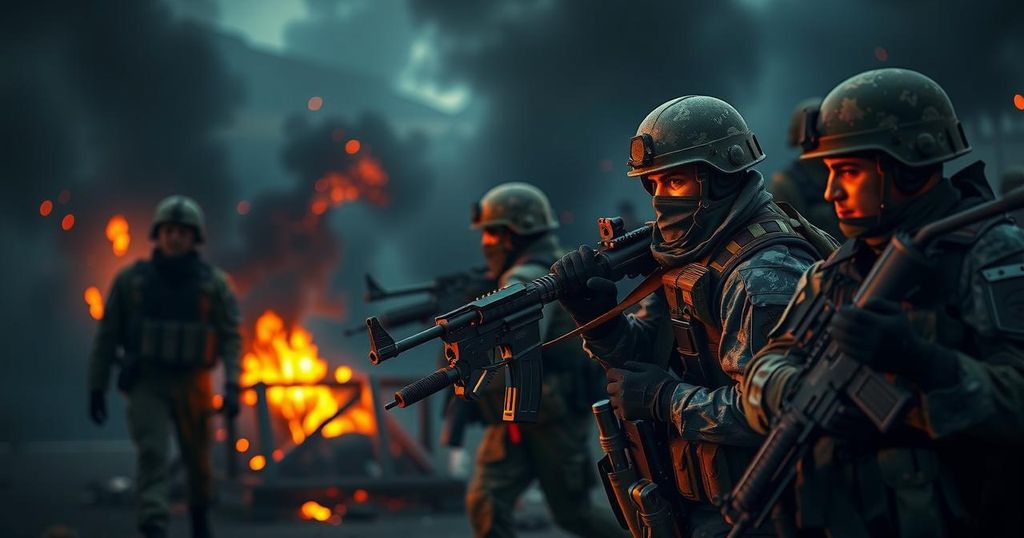Israeli military operations have led to the deaths of 33 in Gaza and 78 in Lebanon, prompting calls from U.S. Secretary of State Antony Blinken for a cessation of hostilities. Reports from Doctors Without Borders highlight damage to medical facilities, raising concerns about Israel’s adherence to humanitarian law. International experts express skepticism regarding the impact of diplomatic interventions amidst ongoing violence.
Israeli forces continue their military operations against Gaza and Lebanon, resulting in significant casualties among both civilians and combatants. Recent strikes have claimed the lives of at least 33 individuals in Gaza and 78 in Lebanon, as accusations arise of Israel employing starvation tactics to drive out residents from northern Gaza. US Secretary of State Antony Blinken has urged for a cessation of hostilities, asserting that Israel has achieved its strategic objective of dismantling Hamas’s military capabilities. However, experts like Adel Abdel Ghafar from the Middle East Council express doubts about the immediate effectiveness of diplomatic interventions. Reports from Doctors Without Borders, or MSF, have highlighted the destruction of a medical clinic in a designated “safe zone” due to an Israeli airstrike, underscoring concerns over Israel’s compliance with humanitarian law. The humanitarian crisis in the area escalates as the international community watches the unfolding developments amid widespread calls for de-escalation and protection of non-combatants.
The ongoing conflict between Israel and Hamas has escalated significantly, particularly during recent military exchanges that have intensified violence in the region. The situation in Gaza has become increasingly dire, drawing international concern regarding the humanitarian conditions faced by residents. The United Nations and various humanitarian organizations have raised alarms about the methods employed in the conflict, highlighting potential violations of humanitarian principles. Escalating actions by Israeli military forces against Gaza and Lebanon compound an already complex geopolitical landscape in the Middle East, with implications that resonate globally. This conflict has further strained relations and raised numerous human rights concerns.
The intensifying conflict between Israel and armed groups in Gaza and Lebanon is marked by escalating violence, mounting fatalities, and severe humanitarian challenges. Calls for a ceasefire from international leaders underscore the urgent need to address the humanitarian crisis while navigating the complex geopolitical tensions in the region. With significant destruction reported and doubts about the efficacy of diplomatic efforts, the situation remains precarious, emphasizing the critical importance of international engagement and adherence to humanitarian standards.
Original Source: www.aljazeera.com






